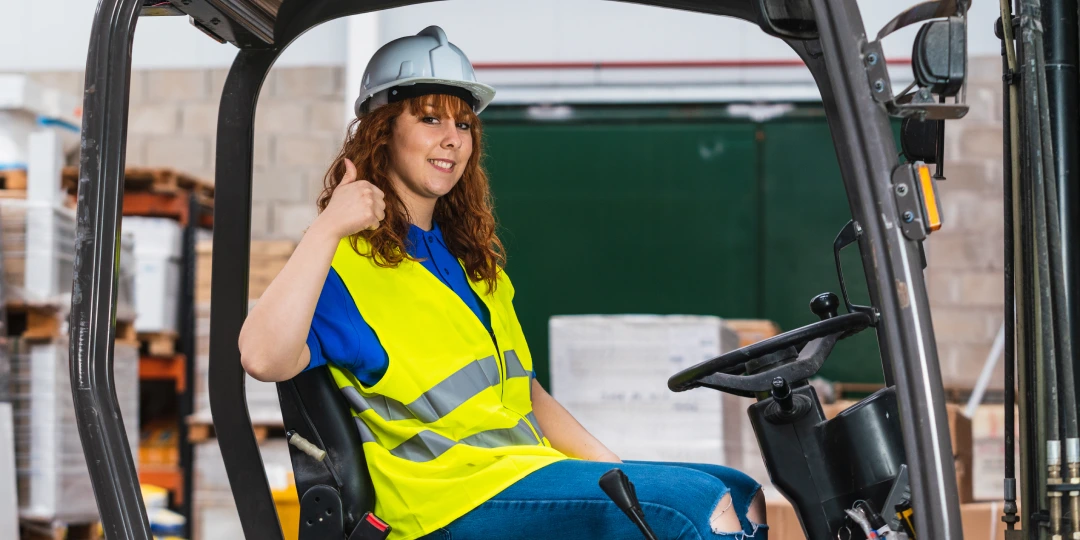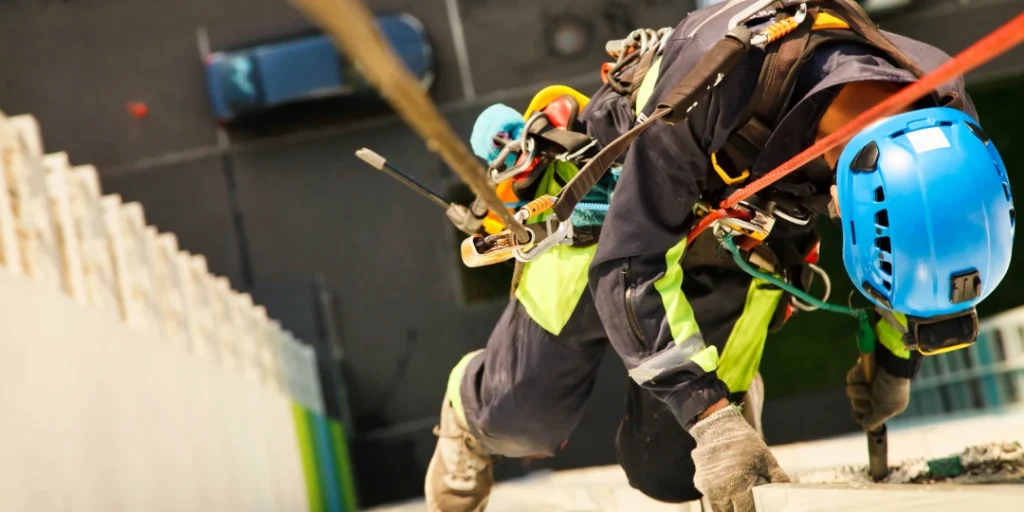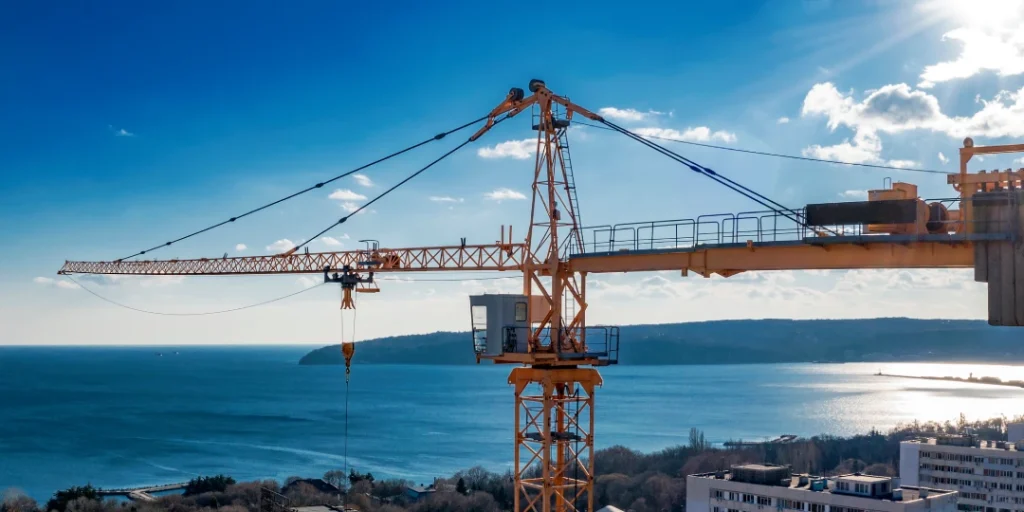Introduction: The Critical Need for Forklift Training
Forklifts play a pivotal role in the operations of warehouses, construction zones, shipping terminals, and manufacturing plants. Their ability to move heavy loads efficiently transforms productivity—but that same power carries risk. Without proper forklift training, operators may lack the knowledge needed to navigate congested aisles, uneven terrain, or hazardous conditions. In these fast-paced environments, a single misstep can lead to a cascade of damages: crushed inventory, vehicle collisions, or life-altering injuries. Forklift training is the cornerstone of responsible operation, equipping individuals with the technical precision and safety awareness needed to handle this machinery with confidence.
The urgency for forklift training becomes even more evident when examining workplace incident data. Each year, thousands of preventable injuries and fatalities are attributed to untrained or poorly trained forklift operators. These accidents not only harm individuals but also inflict serious consequences on employers—ranging from lost productivity to regulatory penalties and rising insurance costs. In cities like Nashville, where the industrial sector continues to expand, the stakes are even higher. Employers must ensure that operators receive thorough forklift training that addresses both OSHA regulations and the practical nuances of the worksite.
Fortier Loss Control addresses this demand with a comprehensive forklift training program designed to meet the highest safety standards while preparing workers for the unique challenges they face daily. The training is structured not just to convey operational rules, but to cultivate hazard recognition, situational awareness, and mechanical aptitude. Nashville businesses turn to Fortier because its approach integrates regulatory compliance with actionable, job-ready instruction. As a result, forklift training becomes more than a safety protocol—it becomes an investment in workforce resilience, operational continuity, and ethical responsibility.
OSHA Requirements for Forklift Operators
OSHA’s regulatory framework is clear and non-negotiable when it comes to powered industrial trucks. Under Standard 1910.178, every forklift operator in the United States must undergo formal forklift training and pass a performance evaluation before being authorized to operate machinery. This training must include a combination of classroom instruction—covering safety principles, hazard recognition, and mechanical controls—and hands-on evaluation to demonstrate competence in real-world scenarios. Employers are legally obligated to enforce this requirement and document certification for each operator. Neglecting to do so can result in steep fines, operational shutdowns, and heightened legal exposure.
Certification is not a one-and-done endeavor. OSHA mandates that forklift training must be refreshed every three years to maintain certification status. Moreover, re-evaluation is immediately required under specific conditions: if an operator is involved in an incident, is found operating a forklift unsafely, or is assigned to a different type of truck. This rigorous standard reflects the evolving nature of safety risks and technological advancements in machinery. Forklift operators must not only learn the rules but also adapt to changing worksite conditions, equipment updates, and task complexity—all of which require ongoing professional development.
Fortier Loss Control ensures its forklift training programs are built to align precisely with OSHA’s comprehensive standards. The curriculum covers all necessary theoretical modules and includes real-time operator assessments under the supervision of certified trainers. Beyond compliance, Fortier emphasizes mastery—ensuring that participants are not only certified on paper but fully competent in practice. Employers who partner with Fortier gain the peace of mind that their teams meet federal safety benchmarks and are prepared to meet the demands of dynamic, high-pressure environments. It is a training solution that merges compliance with operational excellence.
The Risks of Operating Without Proper Certification
Forklifts are powerful machines capable of moving thousands of pounds in a single lift—but that same power can turn catastrophic in untrained hands. Operating a forklift without proper certification introduces a spectrum of risks that threaten not only the safety of the operator but also coworkers, bystanders, and company assets. Untrained operators may misjudge load balance, misinterpret signals, or neglect equipment inspections—leading to overturned forklifts, dropped pallets, and collisions with shelving or personnel. Forklift training significantly reduces these incidents by instilling critical skills and decision-making protocols before an operator ever touches the controls.
The financial implications of operating without certification are severe. Accidents often lead to property damage, downtime, workers’ compensation claims, and regulatory fines. For employers, one incident involving an uncertified operator can trigger OSHA investigations, legal proceedings, and potential litigation. Insurance premiums may spike, and client relationships may be jeopardized if service disruptions occur. These cascading consequences can destabilize an otherwise thriving operation. Forklift training is a proactive defense against these liabilities—an upfront investment that safeguards lives, infrastructure, and long-term profitability.
Beyond legal and financial concerns lies the ethical dimension. Employers have a duty of care to protect their workforce, and workers have the right to operate in a safe environment. Forklift training affirms both responsibilities. It empowers operators with the confidence to perform their duties skillfully and equips them with the tools to protect themselves and others. Fortier Loss Control’s training goes a step further by cultivating a safety mindset—teaching participants to identify hazards before they escalate and to take ownership of safety as a collective value. Operating without certification doesn’t just violate regulations—it compromises the very foundation of workplace integrity.

Why Choose Fortier Loss Control for Forklift Training
In a crowded field of training providers, Fortier Loss Control distinguishes itself through an unwavering commitment to excellence and practical relevance. Unlike generic online courses or impersonal third-party vendors, Fortier delivers forklift training that is local, contextual, and industry-informed. Serving the Nashville area and beyond, Fortier’s reputation is built on years of cultivating trust with regional employers. Their forklift training programs are not only OSHA-aligned but also tailored to the unique operational needs of the industries they serve—from logistics and warehousing to construction and manufacturing.
One of Fortier’s key strengths lies in its instructor-led model. Courses are facilitated by seasoned professionals who have decades of hands-on experience operating and managing forklift fleets in high-stakes environments. These trainers understand the nuances of site-specific hazards and are adept at translating regulations into practical behaviors. Fortier’s forklift training isn’t about passing a test—it’s about mastering the mechanics of safe, efficient, and compliant operation. Employers value this approach because it ensures their teams are not only certified but also confident, capable, and safety-oriented from day one.
Fortier’s commitment to customer service is equally noteworthy. The training experience is seamless from registration to certification, with dedicated support for employers, HR managers, and individual trainees. Flexible scheduling, mobile training units, and on-site delivery options make it easy to integrate forklift training into even the most demanding operational timelines. This accessibility ensures that safety doesn’t get sidelined due to logistical constraints. When businesses in Nashville seek a forklift training partner that prioritizes performance, compliance, and long-term value, Fortier Loss Control is the name they trust.
Curriculum Overview: What the Certification Covers
Fortier Loss Control’s forklift training curriculum is designed with both breadth and depth, ensuring that participants receive a comprehensive education in forklift operation. The course begins with foundational safety concepts, such as the physics of load stability, center of gravity, and tip-over prevention. Trainees learn how to perform pre-operation inspections, recognize mechanical defects, and identify environmental hazards that could compromise control. These core competencies are not just theoretical—they’re brought to life through real-world scenarios and guided practice.
Regulatory knowledge is another cornerstone of the curriculum. Participants receive detailed instruction on OSHA Standard 1910.178, including employer and employee responsibilities, safety signage, and procedural protocols for various forklift classifications. Fortier’s forklift training also addresses lesser-known yet critical topics like operating on ramps, handling irregular loads, and managing visibility in confined spaces. Trainees learn how to navigate common challenges that arise on the job, making them well-prepared for dynamic workplace conditions. This multifaceted instruction ensures that operators aren’t merely “test ready,” but fully equipped to function safely under pressure.
The training culminates in a practical evaluation where each participant demonstrates proficiency in maneuvering, loading, parking, and safety signaling under the watchful eye of a certified instructor. Performance feedback is immediate, constructive, and customized to the individual’s strengths and areas for improvement. Fortier ensures that each trainee leaves with not only a certificate, but a command of forklift operations that translates directly to jobsite readiness. The result is a workforce that isn’t just OSHA-certified—it’s operationally empowered.
Hands-On Instruction from Industry Professionals
The foundation of any effective forklift training program lies in the quality and experience of its instructors. At Fortier Loss Control, training is conducted by seasoned professionals who have spent years working in high-risk industrial environments. These trainers bring a deep understanding of forklift mechanics, jobsite conditions, and operator psychology—insight that simply can’t be replicated by reading a manual. Their practical experience enriches every session, bridging the gap between textbook theory and on-the-ground execution. Trainees gain access to a wealth of real-world knowledge that’s both instructional and immediately applicable.
Unlike automated or online-only training platforms, Fortier’s forklift training emphasizes face-to-face instruction and situational coaching. Trainers walk participants through live demonstrations, correcting posture, hand placement, and turning techniques in real time. This hands-on approach allows trainees to develop muscle memory, spatial awareness, and fine-motor coordination—all essential for safe and effective forklift operation. Feedback is precise, constructive, and tailored to each operator’s learning style and pace. It transforms the learning environment into an interactive, skill-building experience where participants are challenged, supported, and guided toward full competency.
The professionalism and relatability of Fortier’s instructors also foster a deeper level of engagement. They understand the operational pressures that trainees face on the job and adjust their instruction accordingly. Whether addressing the needs of a first-time operator or refining the technique of a seasoned worker, they ensure that every participant leaves with the confidence to perform at a high level. Fortier’s forklift training goes beyond certification—it cultivates a workforce that operates with diligence, awareness, and a heightened sense of responsibility.

Flexible Training Schedules Designed for Nashville’s Workforce
Modern businesses operate on tight schedules, and employees often juggle irregular shifts, overtime demands, and multiple responsibilities. Fortier Loss Control recognizes these constraints and has built its forklift training model to offer maximum scheduling flexibility. Whether it’s a busy distribution center needing weekend training or a small contractor requiring after-hours sessions, Fortier accommodates the unique rhythms of Nashville’s industrial workforce. This flexibility ensures that safety training is not postponed or overlooked due to timing conflicts—it becomes seamlessly integrated into the company’s workflow.
Training sessions are available during evenings, weekends, and even on holidays by request. In addition to public classes hosted at Fortier’s training facility, mobile training units are available to bring forklift certification directly to job sites. This on-location option is particularly valuable for organizations that operate in remote areas or have large crews that would otherwise need to leave their posts. It eliminates downtime, minimizes transportation logistics, and allows training to be conducted in a familiar operational context—enhancing relevance and retention.
For individual job seekers or gig workers, Fortier also provides regularly scheduled open enrollment sessions that cater to diverse experience levels and employment backgrounds. Whether someone is re-entering the workforce or seeking to enhance their skillset, Fortier’s forklift training is accessible, affordable, and aligned with OSHA standards. By offering this level of accessibility, Fortier removes traditional barriers to certification and expands the reach of safety education across Nashville’s rapidly growing labor market.
Industry-Specific Forklift Training Modules
Not all forklift operations are created equal. A warehouse forklift driver’s daily routine differs significantly from that of a construction site operator or a cold-storage handler. Fortier Loss Control understands these nuances and has developed specialized forklift training modules tailored to distinct industry needs. Before training begins, Fortier conducts a thorough needs assessment, analyzing the client’s equipment types, site layout, material handling tasks, and common hazards. This ensures that the curriculum delivered is not only OSHA-compliant but also highly relevant to the operator’s work environment.
These industry-specific modules cover key areas such as load configuration in tight warehouse aisles, ramp navigation on construction sites, and equipment handling under temperature extremes in refrigerated facilities. Forklift training at Fortier also includes case studies and real-life incident reviews from similar industries, allowing trainees to learn from the mistakes and best practices of others in their field. This customized approach adds a layer of specificity that goes far beyond generic safety checklists—it aligns training with actual jobsite dynamics.
Employers benefit greatly from this precision. Workers return from training not just certified, but prepared to tackle the exact challenges they face on the job. As a result, onboarding becomes smoother, compliance audits yield better outcomes, and productivity improves. Fortier’s forklift training doesn’t just prepare operators—it optimizes them. By tailoring each module to the operational context, Fortier ensures that safety training is not only retained but actively applied in ways that reduce risk, improve efficiency, and protect both people and property.
Compliance, Liability, and Legal Protection
Workplace safety violations can quickly escalate from operational setbacks to full-blown legal and financial crises. For companies that rely on powered industrial trucks, non-compliance with OSHA’s forklift standards can trigger severe consequences—including substantial fines, litigation, and shutdown orders. Forklift training is a frontline defense against these liabilities, ensuring that employers not only meet federal requirements but also demonstrate a clear commitment to safety and due diligence. In today’s regulatory climate, documented certification isn’t just a procedural formality—it’s a legal safeguard.
When an accident occurs involving a forklift, one of the first things regulators or investigators assess is whether the operator was properly trained and certified. If certification records are missing or outdated, the company becomes vulnerable to penalties, negligence claims, and insurance complications. Forklift training provided by Fortier Loss Control includes comprehensive documentation and verification, giving employers the paper trail needed to prove compliance during OSHA inspections or legal proceedings. This transparency builds trust with insurers, auditors, and labor officials—protecting the business from unnecessary exposure and reputational harm.
Beyond regulatory implications, proper forklift training also fortifies internal risk management systems. Certified operators are more likely to follow safety protocols, perform thorough equipment checks, and recognize operational hazards before they lead to incidents. This cultural shift reduces the frequency of minor accidents and helps prevent catastrophic events altogether. Fortier’s forklift training fosters this proactive approach by embedding legal knowledge into practical training. Operators are not only taught what to do, but why it matters—resulting in heightened accountability, fewer violations, and a significantly reduced legal risk profile for employers.

Frequently Asked Questions

Conclusion: Investing in Safety, One Forklift at a Time
In today’s fast-paced industrial and logistics-driven economy, the importance of safety cannot be overstated. Forklifts, while indispensable to operational efficiency, carry inherent risks that demand respect, skill, and vigilance. Forklift training is the linchpin that holds this safety framework together—transforming raw operational power into controlled precision and reducing accidents through education and preparedness. For businesses seeking to maintain compliance, protect their workforce, and uphold a reputation for excellence, forklift training is not optional—it is essential.
Fortier Loss Control has positioned itself as a trusted leader in delivering this critical training throughout Nashville and beyond. With a curriculum rooted in OSHA compliance and enriched by real-world application, Fortier’s forklift training programs equip operators with more than a certificate. They provide the competence, confidence, and clarity required to perform in high-risk environments. Whether it’s through flexible scheduling, industry-specific modules, or expert instruction, Fortier consistently meets the evolving needs of employers and workers alike.
Ultimately, forklift training is an investment in people—and by extension, in the longevity and integrity of any organization. Safer workers mean fewer incidents, lower costs, and stronger morale. Certified operators enhance productivity and reduce liability. In every respect, Fortier’s commitment to quality training pays dividends that extend far beyond the classroom. For companies that prioritize safety and professionals looking to elevate their careers, the path forward is clear: begin with certified, expert-led forklift training from Fortier Loss Control.



